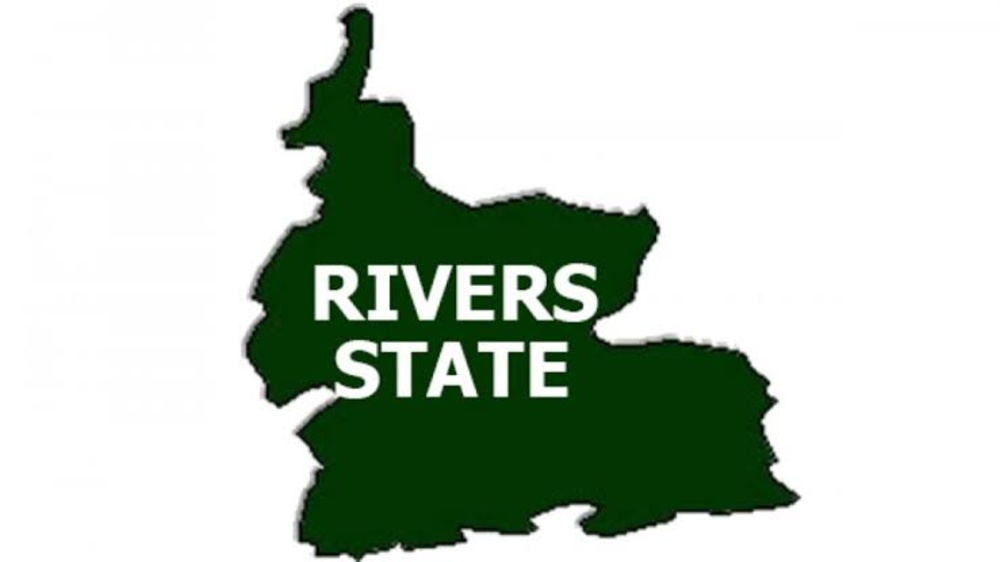Rivers: A Ticking Time Bomb

Rivers State is currently facing a pressing and time-sensitive threat. The oil-rich state has come under intense political scrutiny following President Bola Tinubu’s state of emergency proclamation on March 18, 2025.
Despite official assurances that this step was necessary to tackle a supposed breakdown of law and order, many observers argue that the constitutional criteria for such a declaration were never met. No credible reports indicated imminent danger to lives or property, and even preliminary police statistics showed no unusual surge in violence across the state. Nevertheless, the federal government acted swiftly: in a single directive, it removed the authority of Governor Siminalayi Fubara, his deputy, and dissolved the legislative apparatus, handing over day-to-day governance to Admiral Ibok-Ete Ibas, a retired military officer appointed as ‘Administrator’. This has sparked concerns about potential ‘long-term democratic erosion.’
This arrangement immediately raised red flags for those who initially opposed the measure. Critics argue that Section 305 of the 1999 Constitution—cited by the Presidency as justification—does not grant the power to remove or suspend an elected Governor and legislature. Equally concerning is that instead of simply approving or rejecting the state-of-emergency proclamation, the National Assembly reportedly modified its contents, thereby exceeding the boundaries that the Constitution sets for such an intervention. Opponents hold that neither the President nor federal legislators have the authority to replace elected officials at the state level. The jury is out on the legality or illegality of the state of emergency. Hon. Linus Okorie, a former legislator, described it this way: “The entire emergency process is riddled with constitutional breaches, political motivations, and authoritarian overreach”.
However, since taking office, Admiral Ibas has waded deep into areas typically reserved for elected officials. Among his first actions was to replace civil servants overseeing local government administration and appoint politically aligned persons to key positions across local government areas. As a result, the constitutionally mandated practice of running councils via democratically elected officials has been set aside.
While the original proclamation from President Tinubu allegedly stressed that the Administrator should formulate only “regulations” limited to security concerns, what has taken place on the ground looks far more like lawmaking. Admiral Ibas began preparing the state’s 2025 budget without legislative oversight, triggered the dismissal of Governor Fubara’s political appointees, especially those who were nominated and cleared by the then “United” House of Assembly — and most conspicuously the changing of the leadership of the Rivers State Independent Electoral Commission and the Local Government Service Commission. According to local reports, many new appointees are known loyalists of Minister Nyesom Wike, fuelling suspicion that the entire emergency rule is a ploy to reshape Rivers politics in Wike’s favour.
There is a trend of alleged unconstitutional acts. Critics list the illegal nature of the emergency declaration itself, the contravention of Supreme Court orders regarding the disbursement of state funds, and the public misrepresentation of reconstruction efforts at the House of Assembly complex, among many others. The removal of statutory political appointees is high on that list, especially since no effort was made to show how such dismissals advance public safety or quell any threat. Community leaders, particularly the Rivers Rescue Organisers, point out that neither the restive areas of the riverine communities nor the capital city, Port Harcourt, have witnessed any large-scale disruptions.
Under these circumstances, questions continue to swirl around President Tinubu’s motives. Why plan to replace municipal civil servants with new politically aligned local government heads if the priority is truly stabilising the state? Why reconstitute the state electoral commission under emergency rule, especially if elections are not immediately at stake? How can an appointed Administrator validly prepare a budget, an act of lawmaking, without any form of legislative debate or approval? And does the National Assembly’s role in modifying the state-of-emergency order amount to an overreach that effectively sanctioned the removal of an elected governor and state assembly? Detractors note that emergency powers are supposed to be short-term, narrowly tailored, and strictly limited to restoring order. However, what they see in Rivers is a sweeping overhaul of political power that extends to every layer of governance. The reality is that Admiral Ibas is acting more like a governor-legislator hybrid than a temporary peacekeeping official. Hon. CID Maduabum, a lawyer and former federal legislator, warns, ” The administrator’s unconstitutional actions could exacerbate tensions in the state and plunge the state into total chaos”.
These moves have led many commentators to label what is happening in Rivers as a ‘coup in civilian clothing,’ an accusation arising from the wholesale transfer of authority from constitutionally elected officials to a single federal government appointee. The shift to Wike-aligned figures in strategic positions has heightened suspicions that the state of emergency is an avenue for orchestrating a prearranged political outcome. Much of the controversy also hinges on allegations of political engineering. Local journalists report that of the 15 newly appointed officials to key institutional boards, such as the Rivers State Independent Electoral Commission and the Local Government Service Commission, 11 are loyal to Minister Nyesom Wike, a former Governor who is a central figure in the crisis.
Some have dismissed these claims as ‘partisan conspiracy theories,’ insisting that ‘all appointments are based on proven track records, not political patronage.’ Still, the public’s scepticism runs high, with online forums and call-in radio shows flooded by residents who question why the emergency rule appears far more focused on dismantling existing political structures than addressing any tangible threats to public safety. Community organisers note that hardly any newly appointed officials have prior experience in crisis management or security coordination, raising further doubts about the purported rationale behind their placement. Some worry that Rivers is a test case for 2027, with potential ramifications for other states that may not align with presidential or ministerial interests. In Rivers State, some described this situation as a ” democratic time bomb” where political actors hide under emergency rule to subvert democracy and core norms of constitutionalism. This trend could set a dangerous precedent for the 2027 elections, potentially influencing the political landscape of Nigeria.
The broader implications of the Rivers situation are hard to ignore. With state-level institutions effectively suspended, Governor Fubara sidelined, and the plan for local government councils to be replaced by appointed administrators, many believe constitutional order in the state has been covertly, if not overtly, suspended. Civic organisations warn that disenfranchised populations may react with widespread protests, especially if the promised swift return to normal governance does not materialise. The potential for widespread protests is a cause for concern, as should this standoff persist, it could create a dangerous template for federal interference in states nationwide.
For the people of Rivers State, the immediate concern is the return to constitutional order and preserving their franchise in a system that seems precariously close to unravelling. On the streets of Port Harcourt, protestors have been seen carrying placards reading “Democracy, Not Decrees” and “Our Votes Still Matter,” while religious leaders convened a meeting in different parts of the state to pray for what they described as “the restoration of the people’s will.” Some youth groups have launched social media campaigns using hashtags like #RestoreRiversDemocracy and #LetFubaraGovern, urging the international community to pay attention to “an unfolding civilian coup.” With calls for the Supreme Court to reassert its authority and for civil society groups to mobilise nonviolent demonstrations, tension remains high. If the political impasse continues, Rivers could see a spike in civil disobedience or sporadic unrest, especially given that many young adults in the South-South region believe that political justice, or the lack thereof, is a key driver of local violence.
At the heart of this entire debate lies whether Nigeria’s constitutional framework still holds firm under the weight of executive discretion. Emergency powers, after all, are meant to be invoked only when a true crisis emerges—and even then, only in ways that address the immediate security concerns while respecting democratic principles. The repeated references to Sections 305 and 11 have not alleviated suspicions that the fundamental objective is political control. Local watchers note that the last time an emergency was declared in a state, albeit under different circumstances, the Governor remained in office, and the National Assembly did not assume powers to alter the structure of local councils or reconstitute electoral commissions.
Ultimately, Rivers has become a crucible for Nigeria’s democracy, forcing citizens and the judiciary to consider whether checks and balances can withstand what some describe as an “unconstitutional assault.” Calls for reinstating elected structures have grown louder, particularly as the administrator delves into lawmaking and politics. The Constitution was never meant to be a smokescreen for personal or political ambition. Stripping away entire layers of governance under the pretence of emergency is not what the framers envisioned. Grassroots organisations are gathering signatures, staging peaceful demonstrations, and submitting petitions to the courts to restore what they see as Rivers State’s rightful democratic order. For now, no matter how this chapter ends in the state, constitutional democracy has been fatally damaged, and normalcy and order may be far away.
If there is a silver lining, it is that many Rivers residents, despite feeling sidelined, remain vocal in asserting their rights. Though limited in scope, public opinion polls suggest that a significant percentage of the populace demands a return to constitutional rule. The task of democratic forces in the state now is to use the six months to expose the fraud of the emergency administration and undermine its original intentions.
While the political actions of the citizenry and how the courts will ultimately rule remain to be seen, the state of emergency in Rivers has transcended its initial justification and transformed into a high-stakes test of Nigeria’s federal and democratic systems. The outcome may decide whether democratic norms can remain intact when confronted by executive power cloaked under security.
– Dakuku Peterside, a public sector turnaround expert, public policy analyst and leadership coach, is the author of the forthcoming book, “Leading in a Storm”, a book on crisis leadership.
Disclaimer: This article is entirely the opinion of the writer and does not represent the views of The Whistler.
Rivers: A Ticking Time Bomb is first published on The Whistler Newspaper





